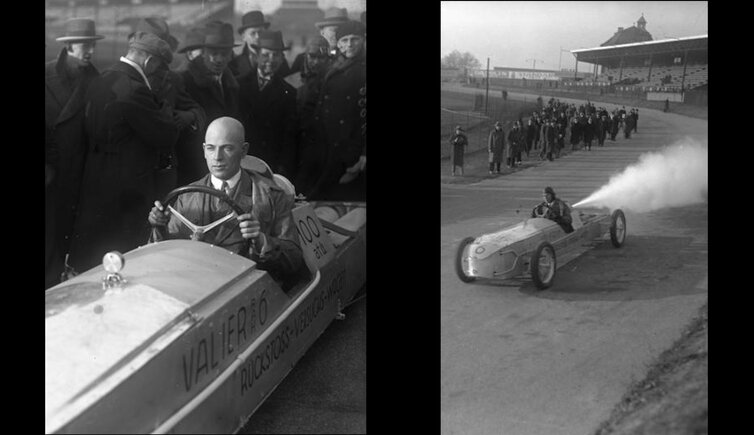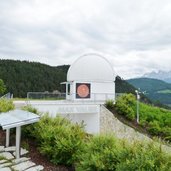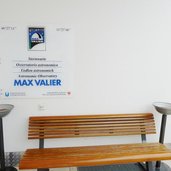Max Valier (1895 - 1930), a pioneer of aerospace and of rocket technology, was born in the South Tyrolean main town of Bolzano
Image gallery: Max Valier
Max Valier was born on the 9th of February 1895 in Bolzano, and was interested in astronomy since a young age. In 1913 he started to study astronomy, meteorology, mathematics and physics at the University of Innsbruck. Due to WWI he was called up for military service and was appointed Lieutenant of the Austrian Air Force in 1918. After the war ended, he took his state examination in astronomy in Vienna and started to work as a science-fiction author and science writer.
His first works were "Spiridion Illuxt", a novel about a nuclear bomb, published in 1919, and a treatise about the different theories of space travel, inspired by the book "Mit der Rakete zu den Planetenräumen" (The Rocket into Interplanetary Space) by Hermann Oberth, an Austro-Hungarian-born physicist and pioneer of rocket technology. With his help, Max Valier published in 1924 his book "Der Vorstoss in den Weltenraum" (The Advance into Space), which was an outstanding success. The young Valier experimented with various vehicle types, drive systems and fuels, making considerable progress for which he was still laughed at back then. Today we know that his experiments were revolutionary, making him a pioneer of rocket technology.
Together with Johannes Winkler, Max Valier founded in 1927 the Society for Space Travel (Verein für Raumschiffahrt) in Wroclaw. In the following years he worked, among others, also with Fritz von Opel, his financially strong sponsor, and was able to test successfully rocket engines for cars. In 1929, he started to experiment with liquid fuels and developed a spirit rocket. In order to obtain financing for his rocket aircraft project from the general director of Shell, Max Valier had to convert the rocket of his test vehicle to paraffin oil: It exploded, causing him fatal injuries.
Max Valier died on the 17th of May 1930 at the age of 35 in Berlin, and was buried on the Westfriedhof cemetery in Munich. Nowadays Max Valier is considered the first victim of space travel. Some of his test vehicles are exhibited at the Deutsches Museum (German Museum) in Munich, the world's largest museum of science and technology. In Bolzano, his birth town, however, the industrial secondary school in German language is named after him. Also the Astronomical Observatory in San Valentino in Campo, the First Astrological Village of Europe, and the South Tyrolean Association of Amateur Astronomers, as well as some roads in Bolzano, Munich, Vienna and in his summer retreat, Siusi allo Sciliar, bear his name.








































